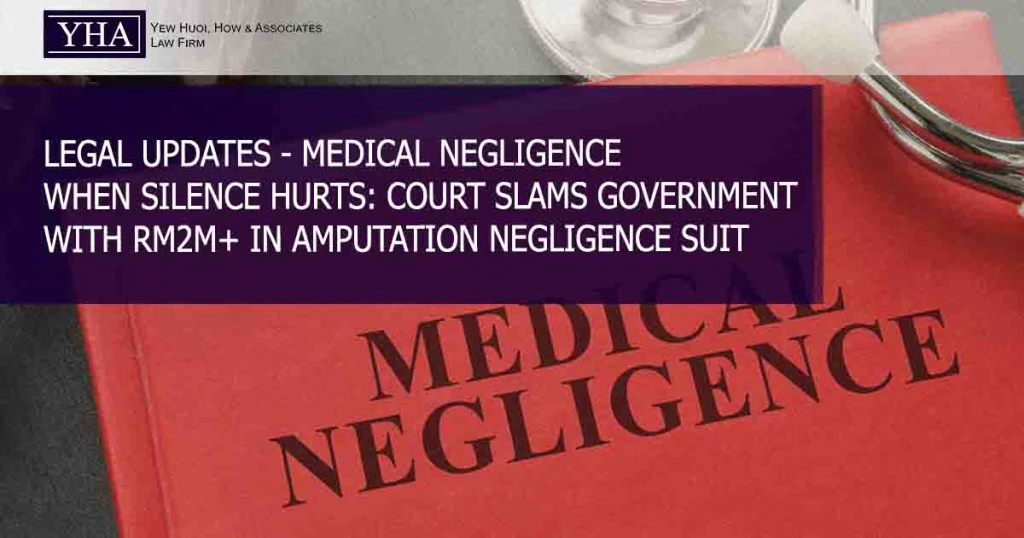1. Summary and Facts
In L/Kpl Naraayanan Nair a/l Subramaniam v Kerajaan Malaysia & Ors [2025] 8 MLJ 593, the Plaintiff, a 24-year-old police officer, filed a medical negligence claim following an injury on 13.3.2018 that led to the amputation of his left arm. The Government of Malaysia (D1) admitted liability on 14.10.2021, and the Plaintiff discontinued his case against other Defendants. The case proceeded to assessment of damages. He sought various forms of compensation including general, aggravated, special, pre-trial, and future damages, along with costs and interest.
2. Legal issues
• What quantum of damages was appropriate for:
i. Pain and suffering and loss of amenities of life;
ii. Aggravated damages due to negligent conduct; and
iii. Special and future damages, including prosthetics, therapy, and mobility needs
• Whether failure to provide medical records aggravated the plaintiff’s suffering?
• Applicability of oral testimony for proving special damages without receipts.
3. Court Findings
• RM150,000 was awarded for pain, suffering, and loss of amenities. The court considered precedents and the plaintiff’s age, continued suffering, and lost career potential.
• RM200,000 was awarded for the additional emotional distress caused by negligent treatment, recognizing the impact on the plaintiff’s dignity and mental health.
• The court when assessing special damages, considered the Plaintiff’s credibility and reasonableness, relied on his oral evidence and awarded RM26,880 for medical expenses, travel, care, vitamins, prosthetics, and car instalments despite lack of complete receipts.
• Furthermore, RM1,982,700 was awarded, including RM1.78 million for a myoelectric prosthesis, future medical needs, and equipment. However, the claim for hiring a maid was rejected due to lack of specific evidence.
• RM70,000 in costs was awarded, 4% interest was set on special damages from date of injury, 8% on general and aggravated damages from writ service date, and 5% on the total judgment sum until full payment.
4. Practical Implications
Aggravated damages in medical negligence cases can be significant where there’s proven emotional and procedural mishandling. Courts accept oral testimony for reasonable special damages even without receipts. Dual prosthesis recognition reflects evolving judicial sensitivity to actual long-term needs of amputees. Healthcare providers may face heightened scrutiny where transparency and timely care are lacking.

